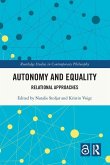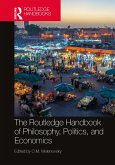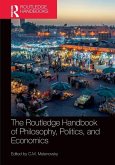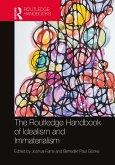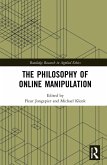The question of autonomy is fundamental to understanding some of the most important questions and debates in contemporary political and moral life, from freedom of the individual, free will and decision-making to controversies surrounding medical ethics, human rights and the justifications for state intervention. It is also a crucial concept for understanding the development of liberalism.
The Routledge Handbook of Autonomy is a comprehensive survey and assessment of the key figures, debates and problems surrounding autonomy. Comprising over forty chapters by an international team of contributors, the Handbook is divided into five clear parts:
Autonomy through HistoryFoundations of AutonomyThreats to AutonomyThe Significance of AutonomyAutonomy in Application.
Within these sections, all the essential topics are addressed, making The Routledge Handbook of Autonomy an outstanding reference source for those in political philosophy, ethics, applied ethics and philosophy of law. It is also highly recommended reading for those in related subjects, such as politics, social policy and education.
The Routledge Handbook of Autonomy is a comprehensive survey and assessment of the key figures, debates and problems surrounding autonomy. Comprising over forty chapters by an international team of contributors, the Handbook is divided into five clear parts:
Autonomy through HistoryFoundations of AutonomyThreats to AutonomyThe Significance of AutonomyAutonomy in Application.
Within these sections, all the essential topics are addressed, making The Routledge Handbook of Autonomy an outstanding reference source for those in political philosophy, ethics, applied ethics and philosophy of law. It is also highly recommended reading for those in related subjects, such as politics, social policy and education.
'This is an invaluable volume, required reading for anyone interested in autonomy, its history as a concept, its applications, and its implications. Carefully planned and edited, with a set of outstanding contributors, not only is it a superb introduction to the debates surrounding autonomy, but it will shape those debates for a long time to come.' - Roger Crisp, University of Oxford, UK
'The notion of personal autonomy is captivating and perplexing in turn. It has centered discussions of justice, respect, community, and accountability but has been variously interpreted in these debates. Scholars whose work runs the gamut from Kantian moral theory to contemporary feminist analyses of oppression have claimed the ideal, often in ways that run counter to one another. This volume lends welcome precision to these many faces of autonomy, analyzing its meaning and the conditions for its realization in the many dimensions to which it is put to use.' - Marina Oshana, University of California, Davis, USA
'Autonomy is widely regarded as a core moral and political value, but philosophers understand it in bewilderingly different ways, and invoke it in a wide range of different contexts. This comprehensive collection both illustrates the variety and helps us see where people are talking past each other. The perfect place to start for anybody wanting to get a grip on this notoriously elusive ideal.' - Adam Swift, University College London, UK
'The notion of personal autonomy is captivating and perplexing in turn. It has centered discussions of justice, respect, community, and accountability but has been variously interpreted in these debates. Scholars whose work runs the gamut from Kantian moral theory to contemporary feminist analyses of oppression have claimed the ideal, often in ways that run counter to one another. This volume lends welcome precision to these many faces of autonomy, analyzing its meaning and the conditions for its realization in the many dimensions to which it is put to use.' - Marina Oshana, University of California, Davis, USA
'Autonomy is widely regarded as a core moral and political value, but philosophers understand it in bewilderingly different ways, and invoke it in a wide range of different contexts. This comprehensive collection both illustrates the variety and helps us see where people are talking past each other. The perfect place to start for anybody wanting to get a grip on this notoriously elusive ideal.' - Adam Swift, University College London, UK
'This is an invaluable volume, required reading for anyone interested in autonomy, its history as a concept, its applications, and its implications. Carefully planned and edited, with a set of outstanding contributors, not only is it a superb introduction to the debates surrounding autonomy, but it will shape those debates for a long time to come.' - Roger Crisp, University of Oxford, UK
'The notion of personal autonomy is captivating and perplexing in turn. It has centered discussions of justice, respect, community, and accountability but has been variously interpreted in these debates. Scholars whose work runs the gamut from Kantian moral theory to contemporary feminist analyses of oppression have claimed the ideal, often in ways that run counter to one another. This volume lends welcome precision to these many faces of autonomy, analyzing its meaning and the conditions for its realization in the many dimensions to which it is put to use.' - Marina Oshana, University of California, Davis, USA
'Autonomy is widely regarded as a core moral and political value, but philosophers understand it in bewilderingly different ways, and invoke it in a wide range of different contexts. This comprehensive collection both illustrates the variety and helps us see where people are talking past each other. The perfect place to start for anybody wanting to get a grip on this notoriously elusive ideal.' - Adam Swift, University College London, UK
'The notion of personal autonomy is captivating and perplexing in turn. It has centered discussions of justice, respect, community, and accountability but has been variously interpreted in these debates. Scholars whose work runs the gamut from Kantian moral theory to contemporary feminist analyses of oppression have claimed the ideal, often in ways that run counter to one another. This volume lends welcome precision to these many faces of autonomy, analyzing its meaning and the conditions for its realization in the many dimensions to which it is put to use.' - Marina Oshana, University of California, Davis, USA
'Autonomy is widely regarded as a core moral and political value, but philosophers understand it in bewilderingly different ways, and invoke it in a wide range of different contexts. This comprehensive collection both illustrates the variety and helps us see where people are talking past each other. The perfect place to start for anybody wanting to get a grip on this notoriously elusive ideal.' - Adam Swift, University College London, UK


